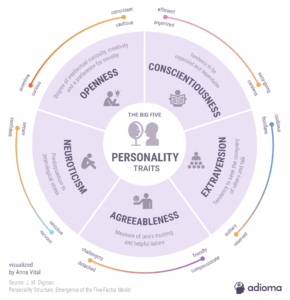The inconsistency in expected behavior potentially creates dissonance in relationships. People tend to question the integrity of a relationship or an anticipated bond based on their belief in ‘knowing’ someone or how well they can ‘read’ someone. Oftentimes expectations undergo modifications until one is satisfied that he/she ‘knows’ someone. The ability to measure behavior accurately is what creates a reliable sense of rapport or camaraderie in general interactions. But what happens when expectations (what is believed) do not stack up? Well, that’s normally when someone will posit ‘oh! that’s not like him/her,’ ‘that’s not the John ‘I know,” and/or ‘I can’t believe he/she would do that,’ creating a feeling of disconnection or the unknown.
Ruminate on this – someone who grew up in a conservative household is influenced by fairly conservative social groups and generally sheltered from extreme societal customs, why should that person be anything but a product of their environment? In math, we learn 1 plus 1 equals 2, surely when you add up similar factors in someone’s living experiences their behavior should be predictable

One factor that secures the mental image of people from our interactions are our biases. By definition, Biases are intrinsic impulses that affect our perception and understand of people, events and ideas (Psychologytoday, 2020). They aren’t positive or negative but can be defined if contextualized. Because of this, we are intuitive in making quick judgment calls while crafting perspectives. This skewers expectations and builds confidence for the ‘I know’ that quickly follows… simply put, our involuntary and inevitable biases are sometimes what form the expectations we have of others.

And that’s something to think about…
To make this make sense if nothing else stuck, one thing you should glean is that expectations and ideals can be insufficient in properly maximizing the examination of behavior. While some people check all the boxes and leave no room for surprises not everyone can fit our reservations. So next time, slow down if you’re about to make the claim “I know” this person because when you build up expectations that are not fulfilled, the inconsistency in expected behavior potentially creates dissonance in relationships.



